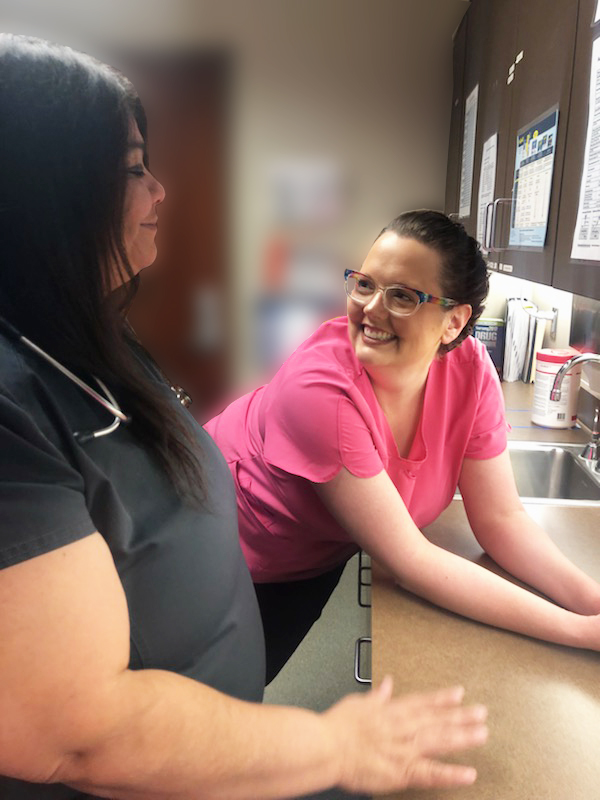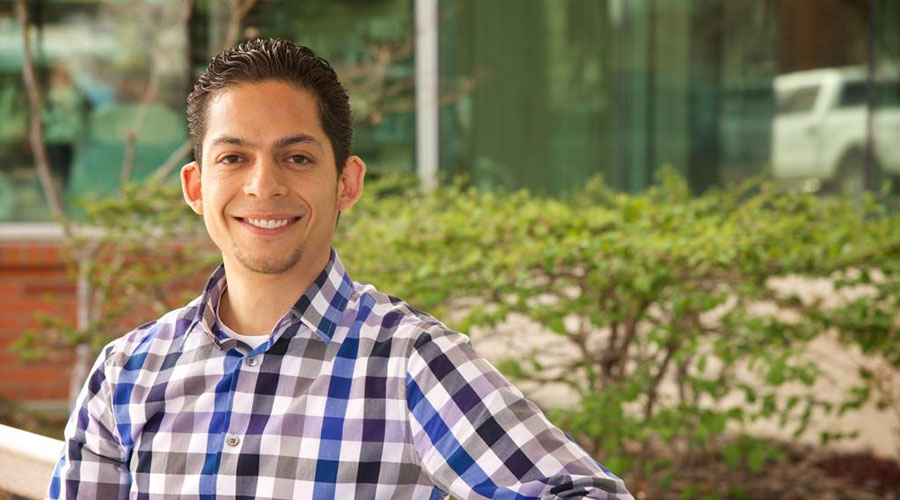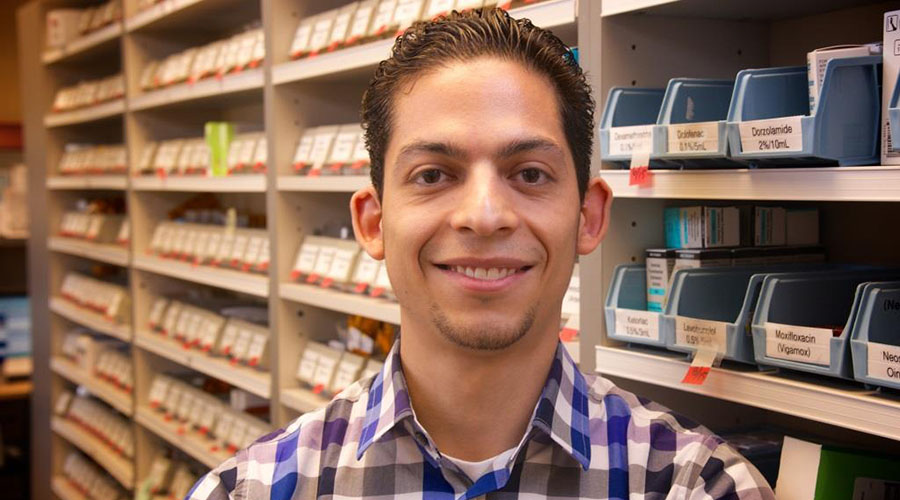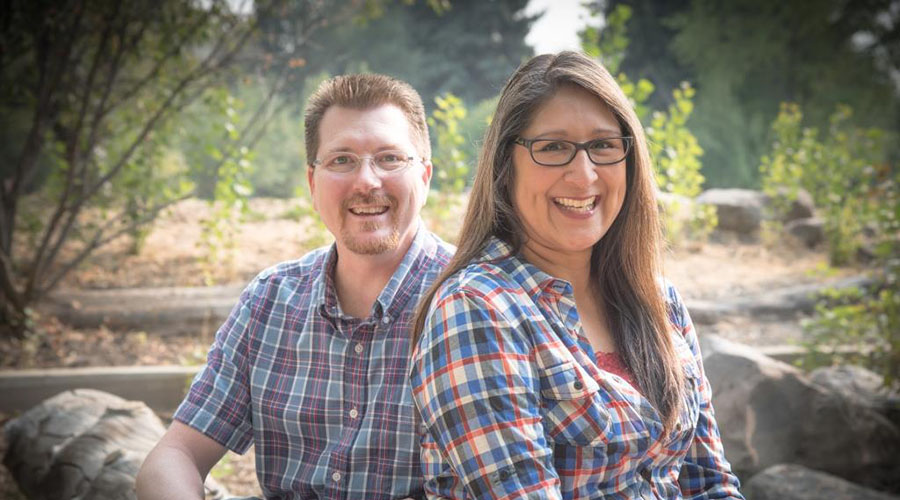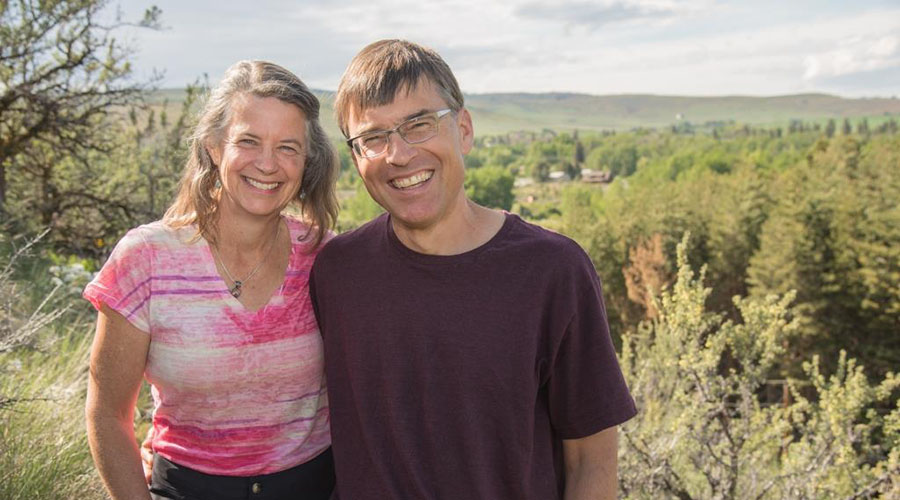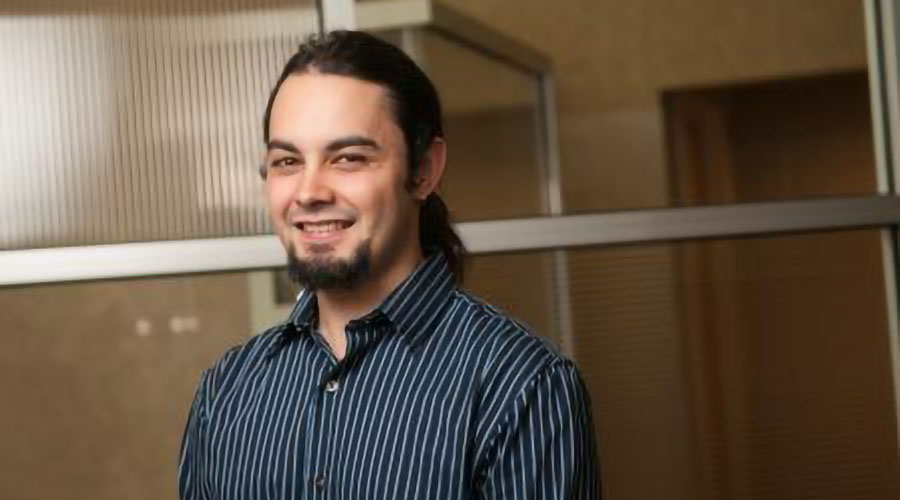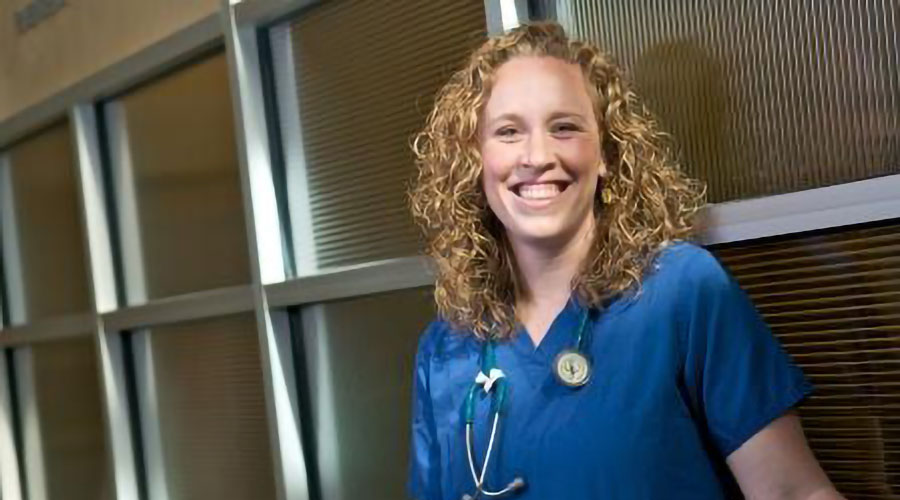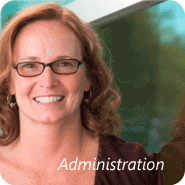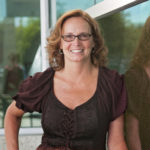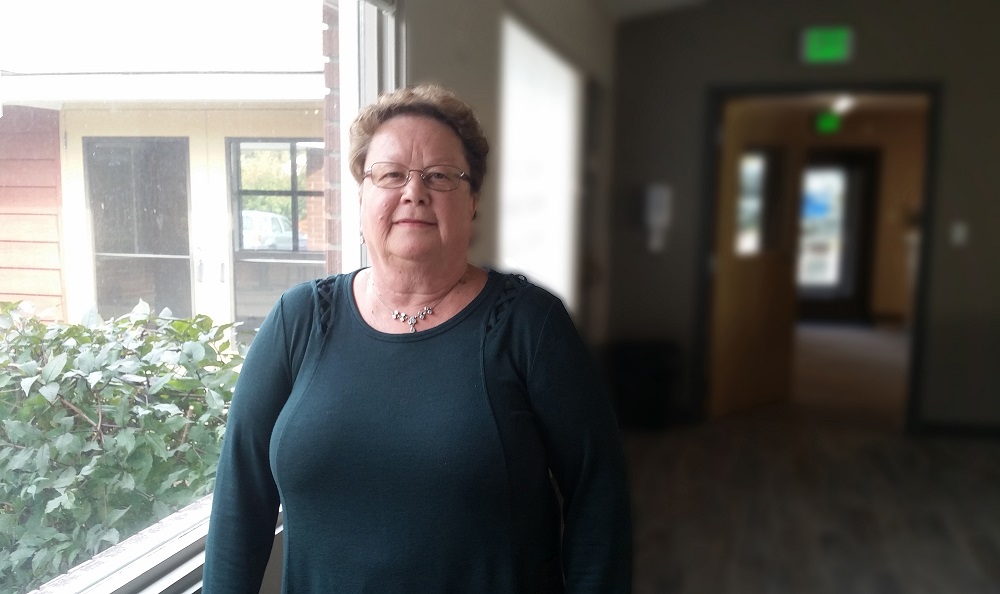
Familiar ground: GNP Jean Yoder, in the main conference room at KVH’s Radio Hill Facility. The room was once a dining area for assisted living residents at Royal Vista, where Yoder made weekly rounds. (Thumbnail photo: Radio Hill exterior.)
Jean Yoder has been a local fixture in senior patient care for the past 23 years.
“I’ve always liked working with elderly people,” says Yoder, who first ventured into the world of healthcare as a young candy striper, bringing meals and other items to patients in their hospital rooms. Years later, Yoder found her calling as a Geriatric Nurse Provider (GNP), bringing medical care to patients in their homes.
Yoder’s was the first class of GNPs at the University of Washington. “We learned from them and they learned on us,” she laughs. Then, after working with geriatricians in the Seattle area, Yoder learned about a program in Ellensburg led by then-director of Home Care and Hospice Carol Detweiler.
A fellow UW GNP graduate, Detweiler’s vision was to bring medical care delivery out of the traditional patient care setting and into the community, particularly for the frail elderly. It was a vision Yoder shared. “We wanted to make care available for those who couldn’t access it,” she recalls, “whether they were physically frail, struggled with dementia, or had other issues that made it difficult to get in and out of the home for medical visits.”
Soon, the program was underway with Yoder as the sole practitioner.
Yoder’s territory included Royal Vista (a skilled nursing facility) and Kittitas Valley Health and Rehabilitation. Every week, she spent two days at each location, and was on daytime call for both. Nights and weekends were covered by patients’ primary care physicians.
From the outset, the program included a collaborative practice with physicians in the community, starting with Drs. Wise, Schmitt and Anderson in Cle Elum, later expanding to Ellensburg and physicians such as Dr. Solberg, who was struck by the increased level of care his patients were receiving under the GNP program. “He and I made monthly rounds together in the skilled nursing facilities for years,” says Yoder.
The steady presence of a GNP helped fill the care gap for patients and their physicians, whose schedules didn’t often allow for regular visits to these facilities. “We could be on-site, evaluate an individual, see where their code status was, talk to family, talk to staff, and get a plan in place to set up and provide care.”
“We were very busy,” she recalls. “With up to 65 patients in each facility, there’s a lot that goes on from one day to the next.”
Covering the community.
Soon, a second GNP was hired, and Yoder began spending a day each week seeing assisted living patients at Mountain View Meadows (now Meadows Place), and eventually Hearthstone.
“It’s not quite as intense as a skilled nursing facility,” says Yoder. “We focus on treating patients in their environment, keeping them healthy and hopefully away from the E.R.”
The GNP team worked with staff to prevent or treat conditions like urinary tract infections, pneumonias, skin tears, cellulitis, etc. With so many variables, says Yoder, “you never knew what your day would be like.”
Another major shift occurred when GNP Anna Collins entered the picture, joining forces with Yoder to divide up days and locations, increasing overall coverage. Collins took on Meadows Place, while Yoder continued at Hearthstone. “We added on Dry Creek (now Pacifica). And in the middle of all that, we started doing home visits.”
According to Yoder, GNP home visits serve those “who fall through the cracks, in the sense that they have many medical problems, but don’t qualify for the Medicare A Home Program” which covers services from KVH Home Health.
Thankfully, Medicare does allow nurse practitioners to do home visits. “It used to be called a doctor’s home visit,” explains Yoder. “We go through the physician to get a home visit, evaluate the patient and, with the patient’s permission, set up a care plan.”
Once they’ve established care with a patient in their home, GNPs make monthly visits unless a change in health brings them by sooner. “If there’s a spell of illness, or an issue like a wound needing frequent dressing changes, or someone is really fragile and needs more attention and services, we work with a physician to bring in Home Health.”
Taking on the trends.
One big change Yoder’s seen during her time as a GNP is the amount of medications taken by seniors. “It used to be that five medications was remarkable. Now, we have people on 15 or 20,” she says. “We look at the whole picture to see how it’s all working, and focus on comfort while getting rid of unnecessary medications and testing.”
Another trend Yoder sees is a faster discharge from hospitals. “Even if a patient rehabs in a skilled nursing facility, what happens once they get home?” The GNP program will soon begin making home visits after patients are discharged. “You can see when you walk into the environment, what’s working, or isn’t, and what we need to do. It involves quite a bit of detective work.”
The next chapter.
Last month, the GNP office relocated to KVH’s newly remodeled Radio Hill facility – formerly known as Royal Vista, the place where Jean first began her GNP rounds in Kittitas County.
Now that things have come full circle, Yoder is set to retire. “I’ve let go of a lot of things already,” she says, as the GNP team has grown to include practitioners Nenna Nzeocha, Marquetta Washington, and Mary Nouwens. “It’s great to have them here. They want to do this work, and they’re not frightened by the scope and intensity of it.” And while she’s ready to focus on family and home remodeling, there are things Yoder will deeply miss – especially her working relationship with Anna Collins. “We’ve enjoyed each other and we communicate well together. We worked hard!,” she laughs.
Yoder is confident that the GNP program, under the visionary direction of KVH Chief Medical Officer Dr. Kevin Martin, is positioned to continue a pattern of growth in caring for patients throughout the county. Yoder’s optimism rests on a legacy shaped by years of faithful service.
“Nurse practitioners make a difference for patients, family, and staff,” she says. “I really believe that.”
Managed by Kittitas Valley Healthcare, HealthNews does not provide medical advice. For medical advice, please see your healthcare provider.
